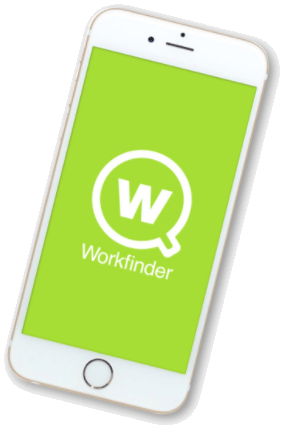The lack of work experience provision is a black mark on the UK’s education system

The power of work experience can’t be overstated. Young people need meaningful interactions with companies if they are to hit the ground running when they take their first steps into the working world. These placements can not only help students to develop workplace skills but also inspire them to find careers they’ll love.
This isn’t news to most. A recent study from the Education and Employers charity and Life Skills by Barclays, “Making the Grade“, reported nine out of 10 secondary school teachers (93 per cent) say that work experience and employer related activities can help students to do better in exams. Similarly, according to the Education and Employers charity, students who experience four or more employer engagements are seven times less likely to be a NEET (a young person not in education, employment or training) and are likely to earn 17 per cent more than peers without the same experience.
But the current work experience model is broken. Employers everywhere are crying out for talent and saying they value work experience over qualifications. But despite this, the numbers of students taking up work placements is woefully low.
According to The Careers and Enterprise Company, only half of schools (54.5 per cent) are offering the majority of their students a meaningful experience of the workplace by the end of year 11. This drops to only a third (33.2 per cent) in the sixth form. The result is something of a perfect storm, threatening to damage both young people’s chances of reaching their potential and our scaling company’s’ growth ambitions, which so often rely on access to talent.
This is a difficult situation. With increasingly slashed budgets, it’s hard for teachers to dedicate time and resource to work experience. The Institute for Fiscal Studies has warned that schools in England are facing the first real-time cuts to their funding since the mid-nineties. Sixth form education has suffered the most, with age 16-18 education experiencing the largest cuts. Add to these slashed budgets, the fact that work experience has been removed from the Key Stage 4 curriculum and you start to see why we’re experiencing the drop.
Without a strong framework for delivering work experience, there’s a dependence on informal networks and an over-indexing on large companies. There are two issues with this: Time-poor teachers cannot be expected to spend large portions of time researching and finding placements for students. That leaves parents. Indeed, The House of Lords Select Committee on Social Mobility found that 82 per cent of young people cited parents as their biggest source of careers guidance. But sadly, this means that work experience can fall by the wayside for many, putting children from less wealthy backgrounds at a disadvantage.
This imbalance in student workplace opportunities is very worrying. Work experience is more important than it ever has been. It’s estimated that 65 per cent of today’s school children will work in jobs that don’t even exist yet. It’s hard to imagine what future requirements will be. As traditional roles are automated (one fifth of jobs are likely to be taken on by robots in the future according to think tank Future Advocacy) new roles will emerge. The best place for students to get a glimpse at these future roles is in the workplaces from which they are emerging. For example, we expect that soft skills, such as communication, will become some of the most valued. The latest Scale-up Review, finds that 74 per cent of scale-ups cite social skills in their top three requirements for school leavers – something young people could hone during placements.
If there is one overarching principle to work placement success, it is that the more enthusiasm, energy and preparation employers put into the placement, the better the student experience will be. Ideally, a placement should offer a diverse range of activities for the student to do. A good rule of thumb is to try and balance learning about a company and the wider industry, engaging with the other employees, being challenged to complete independent tasks and receiving mentoring and feedback.
We have seen some examples of best practice. London’s City and Islington Sixth Form College placed 209 students in work experience over the 2016/17 school year and has seen huge benefits for students. The majority of its students come from families where they are the first generation to go to university and they generally don’t have the networks to find work placements themselves. The sixth form college has built up relationships with local employers, including Lloyds Banking Group, Octopus Investments and law firm Charles Russell Speechlys LLP, from which these placements come.
The results are powerful. Many students have no idea what workplaces are like and so these placements give them a taster which they often find pleasantly surprising. One student, Hannan Saleemi, spent time at Octopus Labs, using his programming skills to create a new employee reward system on the Slack messaging app. “I came to realise writing reliable code for an end product is not that scary,” he said.
But the situation is far from perfect, with not enough placements to go around and a limited range of experience on offer, head of careers, Jo Bishop tells me she’s looking for more ways to access opportunities.

Indeed, one of the answers to the work experience challenge is to make stronger connections between young people and local employers. Founders4Schools has spent the last few years bringing entrepreneurs into classrooms up and down the country to meet students. This has certainly helped to inspire students and get them thinking about their future careers. But our conversations with teachers and students made us realise we could go one step further and create a way to put students in the driving seat.
We’ve created a mobile app called Workfinder, which enables students, their parents and teachers, to explore their local labour market, find and apply for work experience placements. We have the endorsement of business organisations such as the CBI, FSB, IoD, Tech UK, and Chambers of Commerce, not to mention support from entrepreneurs such as Lord Bilimoria, founder of Cobra Beer, Sarah Wood, co-founder of Unruly and Baroness Lane Fox, co-founder of lastminute.com and the 35,000 other business leaders on our platform.
Technology is a great enabler. Our Scale-Up Report found that 100 per cent of net new jobs in Europe came from companies which are less than five years old. These companies are often invisible to parents and teachers yet are also often the places with highest job satisfaction. We hope that by creating tools such as Workfinder, we can enable students to easily explore their future world of work on their own terms and discover these high-growth businesses. In turn, this will enable teachers to get back to what they do best: teaching.
Sherry Coutu CBE, Chair of Founders4Schools and The ScaleUp Institute

Responses